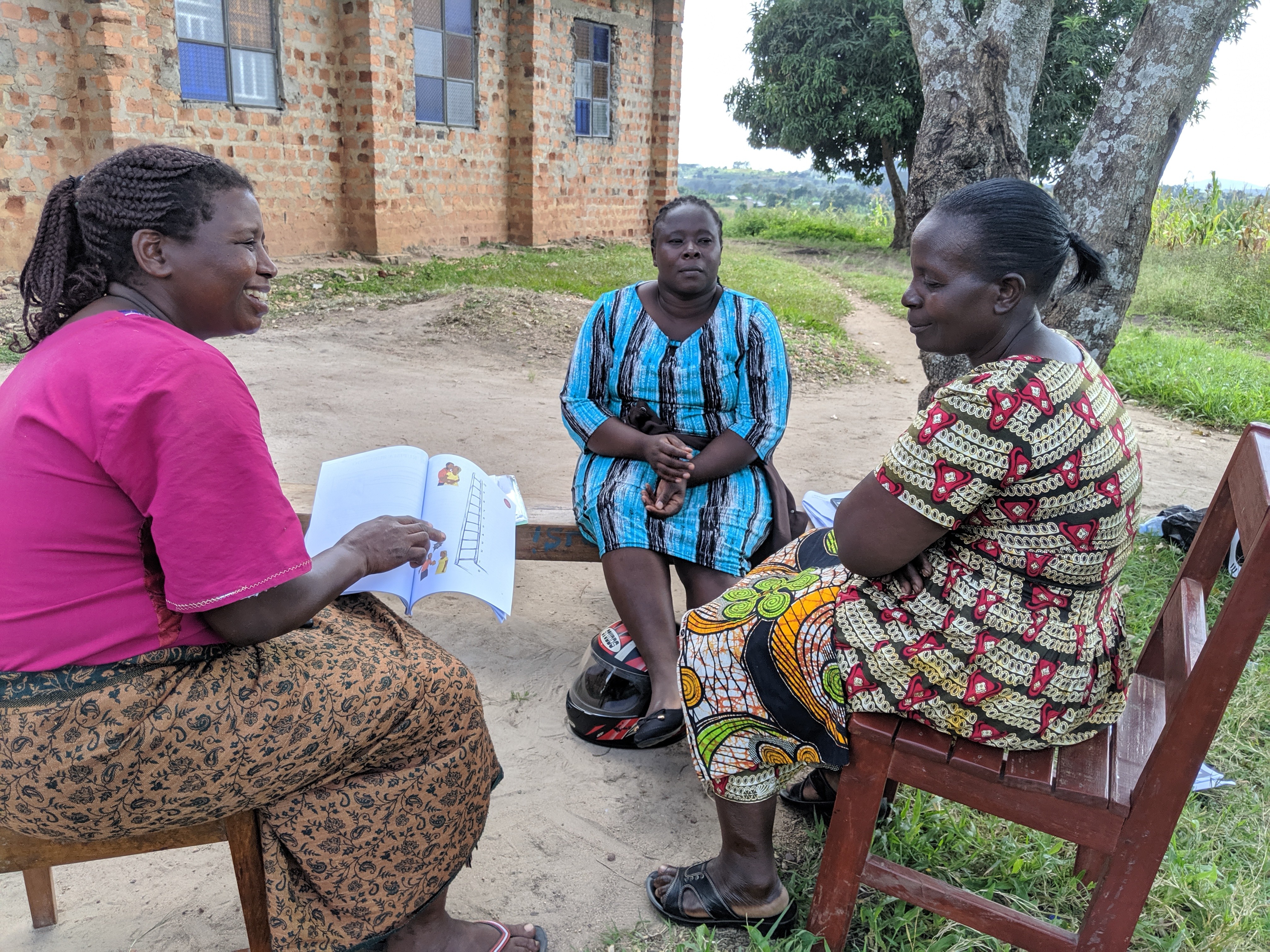Can Religious Leaders Be Agents of Change in the Fight Against Intimate Partner Violence?
Almost a decade ago, right after college, Jackie Namubiru, an anthropologist by training, began her career with IPA. She started as a mobilizer, encouraging people to participate in an impact evaluation that IPA was implementing in her home district Masindi in Uganda. Five years later, she was a key member of the research team that rigorously evaluated Becoming One, a program designed to prevent and reduce intimate partner violence (IPV, sometimes known as “domestic violence”).

Jackie Namubiru piloting content for the group sessions with Religious Leaders. (Photo by Justina Ojom/IRC.)
The Becoming One program, developed through a dynamic, human-centered design process by Airbel Impact Lab at the International Rescue Committee (IRC), takes an unusual approach to address violence between partners. While most IPV prevention efforts focus on reducing violence, Becoming One works to improve relationships. Couples participating in the program meet weekly in group sessions to discuss how to strengthen their relationships. Another innovative element of Becoming One is that these group sessions are led by religious leaders.
"We knew from the beginning that working with the church could be a challenge because of its patriarchal roots; but from our discussions with couples we also knew that in the face of a challenge, in a marriage or personal challenge, the default for people are the religious leaders.”—Jackie Namubiru
Uganda is a deeply religious country. About 86 percent of Ugandans report that their faith is very important to them and more than 80 percent attend weekly religious services. Jackie herself reflects: "If I have to meet my mother and my religious leader at the same time, I will cancel meeting my mother." Uganda is also a country with a high incidence of IPV: according to the latest Uganda Demographic and Health Survey, more than half of married women experience spousal violence.
In this context, the fact that Becoming One produced a 12 percent decline in IPV among participating couples was a major achievement.
Jackie believes that putting people at the center of the program was key to achieving this success. One of the first lessons she learned was "letting the people we want to impact influence all our decisions," Jackie said. Following this approach, the research team learned, for example, that the success of the program depended on the participation of men, not only women, and therefore it was necessary to incorporate strategies to keep men engaged. They also learned that the role of religious leaders as trusted interlocutors is invaluable and that the religious leaders who held more progressive views on gender norms were more effective.
In addition to helping participating couples, Becoming One also had a profound impact on Jackie's professional and personal life. Or as she put it, "Becoming One is like my baby." In fact, Jackie has been a part of all phases of the project. During the pilot phase, she helped ensure that the content originally created in Liberia was appropriate for use in Uganda. During the randomized evaluation phase, she supervised research staff and survey activities, while also helping to train the religious leaders who were so central to the program’s success. She also interacted directly with couples while monitoring the program’s implementation, which was led by World Vision. And now as part of the main research team, she provides meaningful context to the statistics, adding valuable insights she has collected over these five years for Becoming One's national rollout in Uganda in 2023. Most recently, she has been sharing her experience and learnings from the Becoming One project at conferences around the world.
“I have acknowledged, listened, and seen the real existence of violence. Violence is real and a problem and its prevention is a fight that I have become part of. No violence is justified, even in the least amounts.”—Jackie Namubiru
IPA’s evaluation of Becoming One proved the program’s effectiveness. But for Jackie and others striving to reduce IPV in Uganda, the work is just ramping up. Next year, IPA and the Church of Uganda will implement Becoming One across the whole country. Read more about the Becoming One project here.












